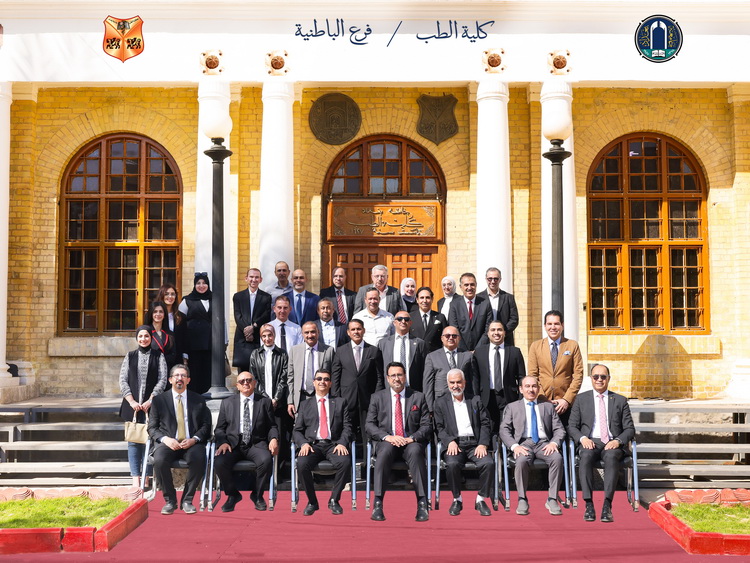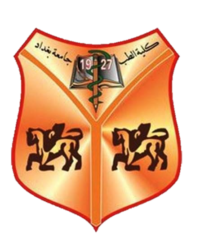
The department of internal medicine was established alongside the establishment of the Royal Medical College of Iraq, where the majority of medical pioneers in Iraq specialized in internal medicine.
The first dean of the Royal Medical College of Iraq was Dr. Harry Chapman Sanderson (Sanderson Pasha), an English physician who was sent to Iraq in 1918 and left in 1946. He was instrumental in advocating for the establishment of a new medical college in Baghdad in 1927 (later named the Royal Medical College of Iraq in 1930) and laying the foundations for its curriculum. Sanderson Pasha served as the dean of the college for two terms, the first from 1927 to 1934 and the second from 1942 to 1946. He also served as the personal physician to the royal family in Iraq. The first batch of doctors graduated from the Royal Medical College of Iraq in 1932.
The office of the presidency of the internal medicine within the Royal Hospital, which was later renamed the Republic Hospital in 1958 and then the Medical City in 1970. Under the administration of Professor Dr. Adnan Al-Jubouri, the branch's headquarters underwent expansion and modernization in 2014.
For a period of time, the pediatric specialty fell under the umbrella of the medical department, and during that time, Professor Luay Al-Nouri served as the head of the medical dep. specializing in pediatrics. However, the two branches were separated in the early 1980s.
The current department of medicine includes many internal and micro specialties, which include:
- Heart diseases
- Respiratory system diseases
- Kidney diseases
- Digestive and liver diseases
- Blood diseases
- Infectious diseases
- Endocrine disorders
- Neurological diseases
- Cancer diseases
- Dermatological diseases
- Joint diseases
- Psychological diseases
- Emergency and intensive care medicine
The College of Medicine, University of Baghdad, strives to provide excellent medical education to graduate competent medical professionals who are well-prepared to work in Iraq and beyond and are capable of receiving postgraduate training.
The medical curriculum will focus on outcomes, aiming to graduate physicians who can perform their roles as junior doctors in local healthcare services, while also possessing the expected general skills of students enrolled in the University of Baghdad.
The course features increasing opportunities to see patients in the community, a high degree of integration of basic sciences and clinical practice, a focus on facilitating student learning, and an increase in student choice regarding their studies.
The course will be organized based on a systems-based approach, with a gradual focus on learning about undifferentiated patient problems.
The teaching and learning approach will be based on problem-based and case-based learning activities, complemented by a range of other teaching and learning activities. There will be systematic teaching of some components to ensure proficiency in key areas.
Students will progressively become more self-directed in their learning, with increasing reliance on IT-based materials and distance learning activities.
Assessments will closely match the defined outcomes. Students will receive regular feedback on their progress with the assistance of a personal tutor.
The curriculum will be centrally managed by a multidisciplinary team led by the Medical Education Head for Medical Education.
A monitoring system will be established to assess curriculum implementation and support continuous improvement processes.

